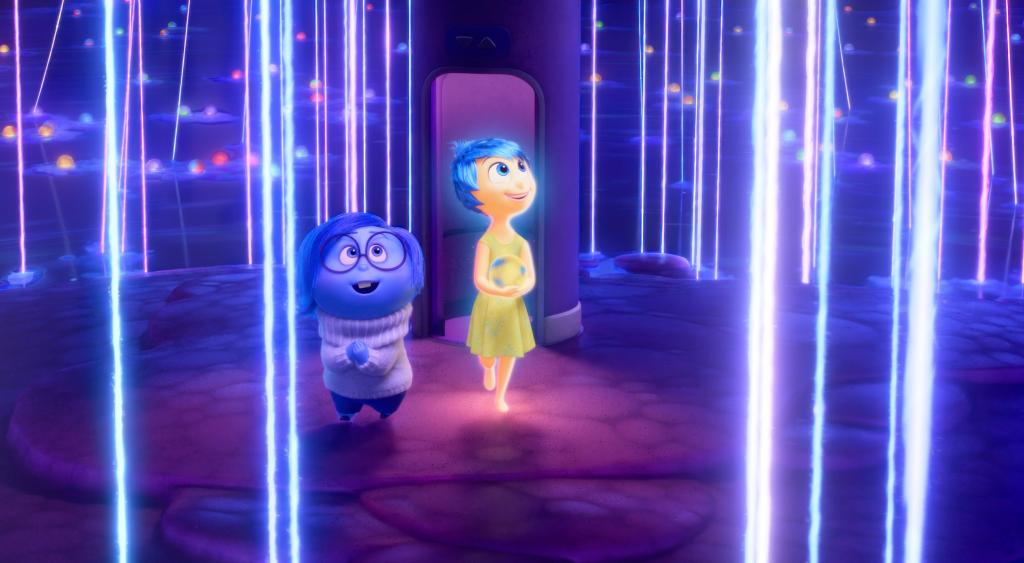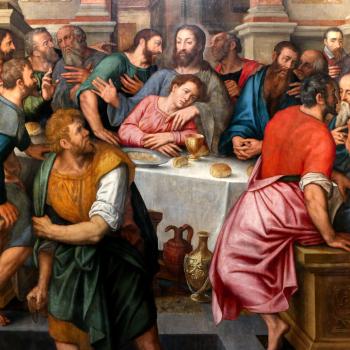To my regular readers: this isn’t just one of my usual posts with musings about what I did this week. It’s also a film review I’m writing in collaboration with Skylight, a spiritual wellness platform that seeks to integrate mental health and spiritual practices. Be sure and give them a visit!

Today, I finally got to see Inside Out 2.
I don’t go to the movies very often, and I usually don’t like cartoons for kids, but I was told that Inside Out 2 would have a pretty robust exploration of mental health and also a little talk about the development of a conscience and a sense of self, so I was curious to check it out. I’m very glad I did because it’s a fun film and it did leave me pondering a lot of surprisingly weighty things.
Inside Out 2, like the first film, personifies the emotions of a vivacious little girl named Riley. This film re-enters Riley’s mind as she begins adolescence on the same day she finds out that her two best friends will be going to a different high school than she will. The old cast of Joy, Sadness, Disgust, Anger, and Fear, find themselves forcibly joined by Anxiety, Ennui, Envy, and my personal favorite, the taciturn Embarrassment. Joy has been hoarding Riley’s unpleasant memories in the very back of her mind so that Riley can develop an entirely positive sense of self, represented by a psychedelic flower that repeats “I’m a good person” over and over as it emits white light. Of course, this all goes horribly awry as Anxiety takes over Riley’s whole personality in a misguided attempt to help her make friends at hockey camp. The original five emotions embark on a journey to regain control of Riley’s behavior before Anxiety ruins her whole life.
First of all, I want to say that the movie is fun and silly and if you’d like to just watch a goofy cartoon without pondering mental health or spirituality, you’ll like it just fine. But my favorite kind of movie is a movie that can do just what it says on the tin and be very entertaining while at the same time delivering a deeper message, so bear with me while I navel-gaze about it for a bit.
As an autistic person who struggles with anxiety and OCD, and who likes to learn about psychology as an amateur to help understand my own experiences, I was surprised at how few problems I have to the way the emotions are portrayed. My main two objections are semantic. I think Envy’s name should actually be “Jealousy,” since she’s motivated by fear of missing out instead of by wanting to hurt others. I also think Embarrassment should be called “Shame,” because he’s not only activated when Riley feels exposed in front of others, but also when she does things that violate her own moral code which no one else sees. I loved how the emotions interacted with one another; it felt very true to life. My very favorite part was the way Embarrassment and Sadness interacted with each other. I found the interplay between Embarrassment and Sadness to be intriguing from a psychological and ethical perspective.
I also especially liked the way the film demonstrated over and over again that Anxiety, though the villain, only wanted to help Riley. I can’t tell you how many times a counselor has reminded me that anxiety is not TRYING to hurt me. Anxiety is just my brain trying to help me by warning me about dangers before I’m hurt. I’ve even been told to thank my anxiety so it feels heard and stops attacking me. That reality was brilliantly personified (and voiced by Maya Hawke). Anxiety can’t be driven away by being killed or imprisoned, but only by being checked and regulated by the rest of the mind, and when anxiety alone takes the helm it eventually leaves a person paralyzed. The sequence portraying Riley undergoing a panic attack was pitch-perfect— the colors, the sounds, the way the other emotions reacted, were all spot on. I have seen good horror movies that failed to portray a panic attack so faithfully.
The battle to restore Riley’s Sense of Self was also sophisticated and interesting, from a psychological perspective. Joy wants the Sense of Self to merely say “I’m a good person” and she suppresses all evidence to the contrary. Anxiety wants to replace that Sense of Self with a shaky orange flower that says “I’m not good enough.” The resolution to the conflict isn’t the one you’d think. Don’t read the next paragraph if you don’t want a mild spoiler.
Inside Out 2 illustrates the fact that mental health, as well as integrity, don’t come from being able to view yourself as exclusively good. Mental health is more about seeing all aspects of yourself honestly: admitting that you sometimes disappoint your family and you sometimes don’t do your best, but you’re also an empathetic person who helps others. That you’re brave, even though you’re sometimes scared. The healthy Sense of Self is much more complex than either Joy or Anxiety think it ought to be. That’s what brings peace between the battling emotions. That’s what brings stability to Riley. And that’s what gives her the integrity to ask forgiveness of her friends.
Put that way, it seems that the “sense of self” in the film is also a portrayal of part of Riley’s conscience, and the battle to alter it illustrates the formation of her conscience.
I appreciate how Inside Out 2 recognizes that having integrity and a moral compass is so interconnected with mental health. Being mentally ill doesn’t make you a bad person, of course. Plenty of glorious saints suffered severe mental afflictions. You can be a saint while psychotic, depressed, having a panic attack or in any other state of poor mental health. But, all other things being equal, it can be hard to get and stay mentally healthy if you’re not also healing and forming your conscience, because our physical, mental and spiritual selves are connected. Forming your conscience doesn’t necessarily lead to excellent mental health. But forming your conscience is healthy. Learning to make ethical choices is better for your mental health than suppressing your conscience, and being spiritually abused by the manipulation of your conscience can ruin your mental health.
My regular readers know that I’m a person who was raised Catholic and still tries to practice Catholicism, even though I’ve been spiritually abused and suffer from religious trauma because of the Catholic Church. It’s traumatic to have your conscience badly formed— to be told that you’re all flaws and should think of yourself as a repulsive toad and not have any good thoughts about yourself at all. The Church as a whole doesn’t encourage that practice, but certain movements within the Church do, and that’s abusive. It damages a person’s mental health as surely as hitting them can damage their physical health. And it’s traumatic to be taught that anxiety is actually a virtue, and constantly being vigilant for everything you could possibly do wrong is a saintly way to behave, but I’ve heard some spiritual leaders act as if that’s true. And, it’s also spiritually abusive and traumatic to be blamed for your anxiety and told, falsely, that the fact you have a mental illness is actually a vice of yours. I will always remember how horrible I felt when a careless priest said in a homily that “anxiety is a lack of trust in God,” as if a mental illness could possibly be a sin. None of these are the official teachings of the Catholic Church, but as any Catholic can tell you, the Church is made of people, and people do say these things.
The Church itself doesn’t have its own “Catholic” theory of mental health, of course.
So it seems that the best thing a Catholic can do is follow the best psychology we can to be as healthy as we can be and have mercy on ourselves for the many ways that our health is out of our hands.
A person with a properly formed conscience can say “I’m a good person and God loves me just the way I am, but I also make mistakes and I sometimes make bad choices. I sometimes choose to do things I shouldn’t, and I ought to work on that. I can do better and make amends for the things I’ve done wrong because I’m a good person and God loves me.” And that’s a very healthy thing to be able to say.
So, altogether, I can say that I not only had a fun time at the movies seeing Inside Out 2, but I also enjoyed the film’s takes on psychology and spiritual well-being as well. I hope you all give it a watch!
If you would like to find out more about Skylight and its tools for working with emotions visit Skylight.org.
Mary Pezzulo is the author of Meditations on the Way of the Cross, The Sorrows and Joys of Mary, and Stumbling into Grace: How We Meet God in Tiny Works of Mercy.

















